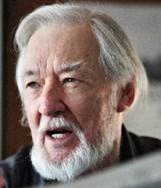Once upon a time, Americans had a collective confidence that what they read in the newspaper or saw on the evening news were accurate and objective accounts that they could rely on to understand what was going on in the world.
That confidence has dissipated in recent decades as the number of media sources has exploded exponentially, the quality of reporting and sources has diminished and the patina of objectivity, once the hallmark of the trade, has been stripped away in favor of editorializing, partisan bias and outright hostility to the beliefs and sensibilities of wide swaths of the public.
The current situation begs a question that is also the name of a special event next week at Grove City College: “Can Journalism Be Saved?
At 7 p.m. Tuesday, April 16 in Sticht Lecture Hall in the Hall of Arts and Letters on the campus of Grove City College, two veteran journalists will address that question and discuss what can be done to salvage the press, an institution so key to the American experience that founder Thomas Jefferson said “were it left to me to decide whether we should have a government without newspapers or newspapers without a government, I should not hesitate a moment to prefer the latter.”
Combat and international journalist Charles Wiley and retired Pittsburgh Post-Gazette editor and former Wall Street Journal correspondent Tom O’Boyle bring decades of experience and insight to the issue.

A journalist and war correspondent for many decades, Wiley has covered numerous wars, including four tours in Vietnam. Early in life, Wiley had a very successful 13-year show business career that included traveling the country as a USO entertainer during the first years of World War II. Wiley then joined the Navy and served in the Battle of Okinawa, was part of the first landing group into Japan following the surrender and evacuating Bikini Atoll ahead of the first atomic bomb test there in 1946. Wiley has reported from more than 100 countries where he has covered 11 wars, been arrested eight times by secret police – including the KGB – and been imprisoned in a Cuban jail. He has worked for NBC, UPI, New York radio station WOR and other outlets. His freelance articles and photos have been published by The New York Times, U.S. News and World Report, Newsweek and Time. He is a well-known radio/TV talk-show personality and has appeared on hundreds of network and local programs.

O’Boyle recently ended a 40-year career in print and digital daily journalism, which began as a business reporter in Chicago in 1979. The New Jersey native is a graduate of Allegheny College and Northwestern University’s Medill School of Journalism. He was on the staff of The Wall Street Journal for 13 years, where he worked in Germany and covered the fall of the Berlin Wall. He then worked 25 years for the Pittsburgh Post-Gazette as a senior manager in the newsroom, where he shepherded a project that won a Pulitzer prize, and on the business side in content, digital strategy, marketing and audience development. He is the author of "At Any Cost: Jack Welch, General Electric, and the Pursuit of Profit” and taught journalism, writing and multimedia storytelling for two decades at Duquesne and Carnegie Mellon universities.
“Can Journalism be Saved?” is free and open to the public.